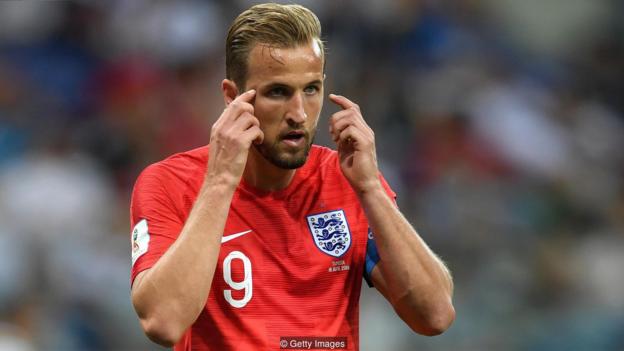Dr. Brunner is a seasoned psychologist who has over 20 years of experience serving high performance athletes.
The human race has barely woken up to its True Potential. As the brain sciences advance at an ever more rapid pace, doctors are learning the brain can be amazingly responsive to precise interventions, such that it can even be repaired and/or damaged parts regenerated. And coaches are learning sports psychologists bring critical expertise to the most important area in all of sports, across any sport: the 6 inches between the ears.
As a recent Wall Street Journal article highlights, sports psychologists are the up and coming professionals ensuring athletes needs, both on the field and off the field, are addressed. I recommend this article to any parent of an athlete, athletes, coach and/or trainer, which is entitled “College Sports Newest Need: Psychologists”. Although I do disagree with this title, as I believe athletes have always needed psychologists, it is just that finally those in the athletics domain are finally waking up to this fact.
The field of High Performance Athletics is increasingly revealing the central role psychological science is planning in bringing out the best in athletes. While the term Peak Performance is being used by thousands of people around the globe every day, it is often the Psychological Expert who can most intimately speak to the nuances of how to bring the athlete to the Next Level.
Sports teams still pay big money to bring in famous athletes who give compelling speeches, and/or still invest in “boot camps” where a team will visit an intensive training process such as a military style training experience. These may have some value in the short term. And for some athletes a rousing speech can remain memorable and motivational for years after.
But the core question that nags at coaches and trainers, which is not commonly solved by rousing speeches by charismatic figures or boot camps, is as follows: How do I help my athlete make a permanently improved change in their performance? Given every athlete has a unique set of emotional states and personality traits, a unique background of experience, a diverse combination of particular levels of emotional states like anger and anxiety, specific memories that motivate them or demotivate them, etc., bringing about reliable behavioral change is rarely easy.
Unfortunately, impairing behaviors are often rooted in complex brain networks, composed of a network of thoughts, feelings, and defense mechanisms that – sometimes vigilantly – protect behaviors. But if you want to win, if you want to be The Champion, you must be committed to having every member of the team get as close to their True Potential as possible.
For some athletes who are more anxious, the psychological expert helps the athlete learn how to modulate that anxiety and re-channel it into productive performance. For some athletes who are far too lackadaisical about their training workouts, the psychological expert helps the athlete and coaching team understand ways to motivate that particular athlete that will gain the most traction, through an understanding of that athlete’s personality.
Great psychologists know how to reach into the deepest parts of a person, identify what techniques will stimulate the most passion in the athlete, not just in the moment as a rousing speech might, but reliably. In other words, over the long term – when the athlete has to decide they want to get up at 5:30 AM for the weight workout – what psychological techniques will ensure that athlete will reliably choose to be on time for that weight workout?
And not just choose to be on time, but WANT to be on time. In fact, feel motivated to be there.
More and more, even coaches themselves are relinquishing the idea that they are the only coach. Future focused coaches are involving sports psychologists more and more as a member of the coaching staff, knowing to get their message across, to maximize teamwork, to iron out petty conflicts on teams, they need to use surgical approaches that far exceed the “stick and carrot” old-school coaching approach.
My humble (LOL) opinion is the future of high performance Athletics will increasingly be driven by sports psychology experts. Why?
The brain is the most complex organ in our body, and improving how it performs requires knowing exactly where and how to make precise adjustments that will endure, even under the greatest competitive pressures. The brain resists change as the human is a creature of habit, and behaviors are embedded in a complex network of thoughts and feelings.
Think about it this way: one behavior is like a segment of webbing within a complex spider web. To change that behavior requires appreciating the connectivity that behavior has to the surrounding behaviors. Each of those surrounding behaviors can themselves be composed of thoughts and feelings, of varying frequencies and intensities.
Thus, to bring about sustainable change to entrenched habits often requires a precision guided “mechanical engineering” approach whereby, after the surrounding webbed network is mapped, a concise approach is identified. Psychologists are experts in appreciating the nuanced complexity of the Brain Web, and in how to bring about behavioral change by utilizing the talents of the athlete while filling in that athlete’s skill gaps.
Advanced athletes have an acute appreciation for the fact that they most quickly and reliably accelerate their development by finding mental techniques that precisely fill in their skill gaps.
Outdated athletic programs over rely on charismatic speeches, angry tirades, or other “flash in the pan” approaches that most commonly have temporary traction only. Increasingly, psychological science is teaching coaches that they can get much farther with players using psychological finesse, instead of over relying on brute force, emotion-laden, motivational speeches.
Future focused athletes and coaches use psychological finesse, not force. And sports teams are understanding this. Many NFL teams now have numerous sports psychologists, each to handle different facets of performance, including psychologists who specialize in optimizing the sleep athletes get.
Athletic brains are like car engines – they are most reliably enhanced by certified mechanics, not in the moment, roadside breakdown Band-Aids.
Here at the University of Arizona, one of the top Sports Psychology programs in the US, the critical importance of behavioral science is deeply appreciated. I hope more and more sports programs, coaches, and trainers will continue to appreciate the unique expertise of the psychological expert. The athletic programs that do not fully utilize Psychological Science in the future will be left in the dust by the programs that do.



